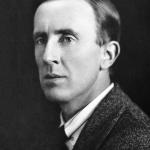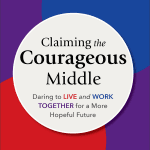In this series of blogs on Top Ten Books, I want to cover a variety of topics. Today’s is on Paul and sometime this weekend I want to post one on the Top Ten Books in Biblical Studies (overall).
The Apostle Paul is no longer who he once was — at least that is what has happened to our images and understandings of him since the late 70s. Again, I’ve tried to focus here on what I think are the best and readable books. (In this one, the “readable” part is what is difficult.)
1. W.D. Davies, Paul and Rabbinic Judaism: widely neglected today, this book recovered the Jewishness of Paul.
2. E.P. Sanders, Paul and Palestinian Judaism: student of Davies whose book is the most influential NT book of the 20th Century.
3. J.D.G. Dunn, The Theology of Paul the Apostle: the official “New Perspective” book.
4. N.T. Wright, The Climax of the Covenant and What Saint Paul Really Said
5. H.R. Ridderbos, Paul: An Outline of His Theology: hard to read, traditional view of Paul.
6. A. Segal, Paul the Convert
7. J. Christiaan Beker, Paul the Apostle
8. D. Boyarin, A Radical Jew
9. S. Westerholm, Israel’s Law and the Church’s Faith
10. D. Wenham, Paul: Follower of Jesus or Founder of Christianity?
There are so many more, including J. Becker, Wayne Meeks, A. Schweitzer, K. Stendahl, R. Riesner, R. Knox, and Peter O’Brien.
One comment: this list favors the New Perspective because this view has the most innovative books. The older, more Reformed view of Paul’s theology simply hasn’t found a major proponent in book-length form of late. There has been lots of sniping going on about the New Perspective in the journals and in conferences, but a restatement of the pre-New Perspective of Paul isn’t on the shelves right now (unless you count Ridderbos, which was published when I was in college). The link I have to the New Perspective is to Michael Bird’s fine page: all kinds of bibliography and debate to be found there. In particular, you might want to look at the piece by F. Watson.















